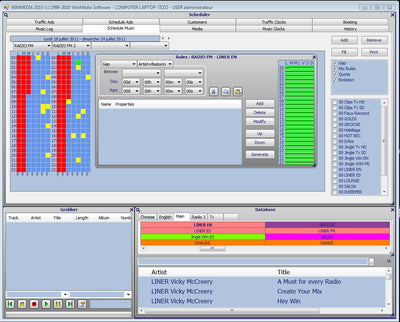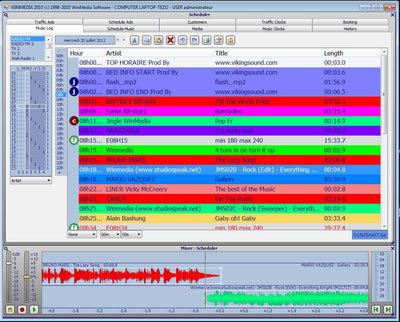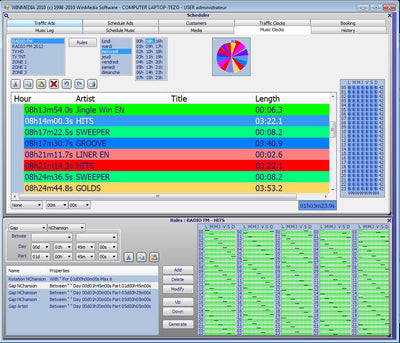Tu carrito está vacío
- TURNKEY SOLUTIONS
- TRANSMISSION
- RADIO
- PRO AUDIO
- PODCAST
- VIDEO
- RESOURCES



This module is based on a musical format created in the Music Clocks. Here the programmer prepares the format of the station and includes time markers. Each clock is created by dragging and dropping the desired category into the linear schedule. A representation of the hour is displayed in a pie chart. Cutting and copying the clocks to various days and hours of the format as well as importing, exporting or print formats is also possible. The creation of this format is an essential stage with programming process. Music rotation rules can be controlled from the Music Clocks Properties. These rules include gap rules, quota rules, rotation rules and mixing rules. They manage both a vertical and horizontal distribution of songs which is visible in an expandable view of a calendar which visualizes the number of times a song is played in the week or month. Gap rules set the time between each broadcast of a song in function of the parameters selected. These parameters include standard fields like artist and title but also an unlimited number of creatable fields. Quota rules allow for a minimum or maximum of times a category or field can be broadcasted, for example a maximum of English song of 40%. For the parameter setting of the criteria of rotation of a category, the software proposes real a time help by posting standard programming making it possible pre-to visualize the placement of the titles over one month, it also posts the number of titles necessary in a category for optimal programming. In addition to the standard fields (artist, kind, language, country, etc), it is possible to create new fields and new constraints, thus making it possible to adapt to the methods of programming of the station. It is also possible to create special categories (dynamic search categories) which are filters on the whole of the titles of the database. For example, a dynamic search category could generate songs from the year=?2004? and the language=?English? if both the Year category and the language category were created and populated.